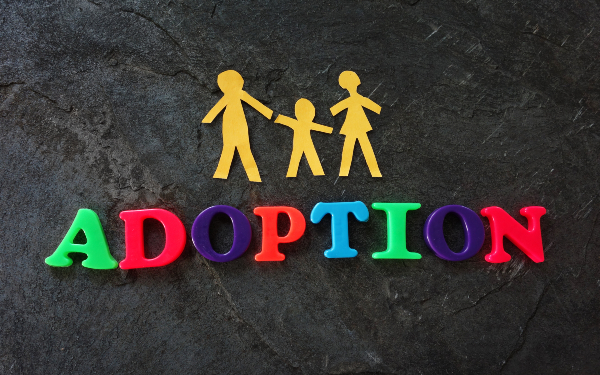
Adoption practice remains strong but regional agencies are struggling to recruit and retain social workers, inspectors have found.
Many of the challenges that led the government to regionalise adoption services from 2017 onwards remained, including insufficient adopters, long delays in matching certain groups of children and a lack of adoption support.
Those were among the findings of an Ofsted inspection of six of the 32 regional adoption agencies (RAAs), who are collectively responsible for the vast majority of local authority adoption services in England.
Despite this, Ofsted does not currently have powers to inspect RAAs; instead, it monitors local authorities’ adoption practice, including through RAAs, through its inspecting local authority children’s services (ILACS) framework, alongside its regulation of voluntary adoption agencies (VAAs) and adoption support services.
It was commissioned by the Department for Education (DfE) to carry out the thematic inspection, which covered the effectiveness of their adoption and adoption support services, improvement focus and governance, and the extent to which they were informed by the views of people with lived experience.
The six agencies, which inspectors visited from October to December 2023, covered 30 local authorities in the North East, Yorkshire and the Humber, West Midlands, East Midlands, London and the South East, and were established between 2017 and 2022.
About regional adoption agencies
In 2015, the government declared the then system of adoption services “highly fragmented”, with 180 agencies recruiting and matching adopters for just 5,000 children, leading to inefficiency, high costs and delays.
As a result, it said all local authorities should combine their recruitment, matching and support services into RAAs, each of which would have a larger pool of adopters to draw upon, enabling children to be placed more quickly. It also saw RAAs as improving the commissioning of adoption support.
As of August 2023, 32 RAAs had been established, with responsibility for adoption services covering 149 of the 153 councils.
Adoption practice remains strong
Ofsted said adoption practice – across councils, VAAs and adoption support services – had long been a strength and the inspection revealed this had remained so post-regionalisation, particularly in relation to recruitment, assessment, family-finding and matching.
Most of the RAAs had carried out targeted recruitment, resulting in an increase in black and LGBTQ+ adopters and those willing to consider early permanence (where a child is placed with prospective adopters as foster carers), inspectors found.
Social workers had learned from recent child safeguarding practice reviews to increase their contact with prospective adopters’ children and support networks during assessment, in recognition of their “essential role” in supporting adoptive families.
Ofsted said training during assessments and after approval equipped adopters to understand children’s early experiences and made them feel well prepared for their adoption journey.
And inspectors also found that RAAs had “developed strong working links” with local authority children in care teams, giving them an understanding of the children needing adoptive families, to support family finding and matching.
Longstanding challenges remain
However, the inspection found challenges across all these areas, including because of longstanding issues that regionalisation was designed to solve.
The insufficiency of adopters, compounded by Covid and the cost-of-living crisis, affected all of the RAAs, reducing choice for some children awaiting adoption. Children’s social workers working with two RAAs reported having only a single prospective adopter to consider for matching a child in some cases.
Despite targeted recruitment of adopters, the profile of children who waited longer for an adoptive family remained consistent with pre-RAA practice, including sibling groups and children with more complex needs.
While some member councils had reduced spending on inter-agency fees – where they pay to place a child with an adopter approved by another agency – in others spending on these fees remained high. In some cases, this meant children being placed outside of their region, making it more difficult to visit or support them.
National shortage of social workers
RAAs also faced a national shortage of social workers to undertake assessments, with four of the six agencies visited not having enough practitioners, either due to vacancies or a lack of capacity in the staffing structure.
Some RAAs were not transparent with applicants about these shortages, meaning prospective adopters were sometimes asked to undertake research or training themselves because no one was available to start their assessment. This led to delays of up to three months and left some adopters feeling “frustrated and misled”, said Ofsted.
While leadership was stable in the RAAs visited, some areas had seen an increase in staff turnover in the transition to regionalisation, sometimes linked to leaders trying to establish consistent levels of practice among staff who had different starting points.
This meant that some children and adults had to retell their story to new staff. Though turnover was still an issue in one RAA, four had seen this reduce, improving consistency for those using their services.
Lack of adoption support
A lack of staffing and resource also afflicted the provision of adoption support, which varied significantly across RAAs.
In some local authority areas, where adoption support was previously limited, regionalisation had improved provision, with individual RAAs developing strong in-house provision, such as psychologists to support both practitioners and adoptive families.
Some children and families experienced timely provision of services, but others faced “extensive delays in obtaining an assessment of need, or any form of support”, with waiting lists of up to six months for an initial assessment in some areas.
Families afflicted by delays were often in crisis, which was “highly detrimental” and left them feeling isolated, with some children placed on child in need plans as a result while families waited to access support.
Three of the RAAs said they were at capacity in relation to adoption support, but demand was continuing to increase, though some agencies had introduced measures to support adopters waiting for a support, such as a duty service or provision of training.
Adopters voiced concerns about accessing the government’s adoption and special guardian support fund (ASGSF), which is designed to provide essential therapeutic services, because of the need to apply annually and the current end date of March 2025.
Among its recommendations from the inspections. Ofsted called on the DfE to review the short-term nature of the ASGSF,
Voice of the child ‘underrepresented’
The inspections also found that the influence of those with lived experience on RAAs was “inconsistent”. Good practice including mentoring schemes for new adopters in which they were supported by more experienced peers.
However, RAAs were not strategic in analysing people’s views and the voice of the child was “noticeably underrepresented”.
Ofsted found the six RAAs had different models and structures, each with its own strengths and weaknesses, making it difficult to draw like-for-like comparisons.
It said the lack of a consistent blueprint for RAAs had, at times, slowed their pace of development, which provided a lesson for the DfE as it seeks to develop regional care co-operatives (RCCs) under its Stable Homes, Built on Love reform agenda.
These are designed to regionalise the commissioning of care placements and the delivery of in-house council fostering services and children’s homes, and are due to be tested in two regions, though these are yet to be announced.
Ofsted added that it would be working with the DfE on how adoption services should be inspected and regulated in future.



 Bournemouth, Christchurch and Poole
Bournemouth, Christchurch and Poole  Hampshire County Council
Hampshire County Council  Lincolnshire County Council
Lincolnshire County Council  Norfolk County Council
Norfolk County Council  Northamptonshire Children’s Trust
Northamptonshire Children’s Trust  South Gloucestershire Council
South Gloucestershire Council  Wiltshire Council
Wiltshire Council  Wokingham Borough Council
Wokingham Borough Council  Children and young people with SEND are ‘valued and prioritised’ in Wiltshire, find inspectors
Children and young people with SEND are ‘valued and prioritised’ in Wiltshire, find inspectors  How specialist refugee teams benefit young people and social workers
How specialist refugee teams benefit young people and social workers  Podcast: returning to social work after becoming a first-time parent
Podcast: returning to social work after becoming a first-time parent  Podcast: would you work for an inadequate-rated service?
Podcast: would you work for an inadequate-rated service?  Family help: one local authority’s experience of the model
Family help: one local authority’s experience of the model  Workforce Insights – showcasing a selection of the sector’s top recruiters
Workforce Insights – showcasing a selection of the sector’s top recruiters 

 Facebook
Facebook X
X LinkedIn
LinkedIn Instagram
Instagram
Comments are closed.